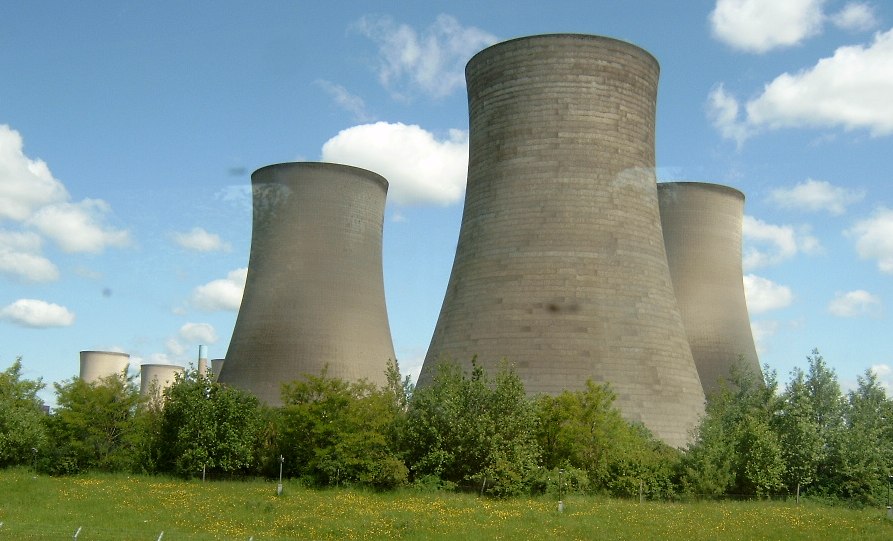The announcement last week, that a new nuclear reactor is to be constructed over the next decade at Hinkley Point in Somerset arrived at a crucially controversial moment in the Energy Consumer debate. With npower revealing its plans to increase its energy costs next month by 10.4%, and a third of the ÔÇÿbig sixÔÇÖ to announce a hike, controversy over rising energy costs reached fever pitch. With an estimated 17 million households expected to be hit by the soaring costs, many may have been expecting the new generator to herald lower energy costs. They were left disappointed.
The government agreement surrounding the new plant, which is to be controversially backed by foreign investors, the French firm EDF energy and two Chinese firms; has pledged a guaranteed price of ┬ú90-95 per megawatt hour of energy produced to the investors. This ÔÇÿstrike priceÔÇÖ is double the current market price for electricity. And it has the potential to increase.
With the anxieties surrounding nuclear plants and the threats they can pose, the recent Fukushima disaster is still fresh in many peopleÔÇÖs minds, so the governmentÔÇÖs decision to agree to such a high ÔÇÿstrike priceÔÇÖ appears surprising.
The promise of lower energy cost to consumers would surely guarantee support for the new enterprise. In fact critics have argued that the CoalitionÔÇÖs pledge will only fuel the current energy retailersÔÇÖ arguments and cause them to raise their prices even further in the next decade.┬á However John Cridland, Director-General of The Confederation of British Industry, argued that the investment would actually help ÔÇ£mitigate the impact of rising costsÔÇØ as current suppliers would not be able to go beyond the prices pledged in the agreement. At their current rate of increases there is not the unlikely possibility that they would reach more than the ÔÇÿstrike priceÔÇÖ prior to 2020, the current estimate for the new Hinkley plant to be completed.
The plan, backed by the Coalition, has drawn criticism from Labour ,with Shadow energy secretary, Caroline Flint, complaining of the ridiculousness of the government being able to ÔÇ£set prices 35 years ahead for the companies producing nuclear power, while insisting they canÔÇÖt freeze prices for 20 monthsÔÇØ for struggling consumers. Ed Miliband has promised such a freeze if Labour is successful in the 2015 election. Many energy suppliers object to such a freeze, arguing that a forced fixed price will prevent new infrastructure being implemented and undermine their quality of service in delivering energy to homes, the defence for rising costs.
However, with wholesale energy costs actually having fallen since previous supplier hikes, many are, unsurprisingly, outraged by the recent increases. The announcement from npower has come hot on the toes of SSE and British Gas announcing an 8.5% and 9.2% rise, respectively, to be instigated next month. It is likely that the remaining three of the ÔÇÿbig sixÔÇÖ, EDF, E. ON and Scottish Power will make similar statements in the coming weeks. The CEO of npower, Paul Massara, has defended his companyÔÇÖs hike, the highest yet, by declaring they only make 5% profit from their retail out-goings. However the Energy select committee have calculated that they actually made a 25% profit from their supply to UK homes last year, justifying the claims from Labour and pinched consumers that the majority of energy companies are exercising too much greed.
With six million UK households currently facing fuel poverty and this expected to rise to nine million by 2016, such profiteering from fuel suppliers cannot continue. And this is where the utilisation of nuclear power could in fact come in useful. Daniel Grovesnor, head of DeloitteÔÇÖs UK nuclear practice, is one of many who believes the Hinkley agreement should ÔÇ£open the flood gates and unlock further investmentÔÇØ in a UK nuclear sector. Such investment will fulfil the governmentÔÇÖs hopes for a new nuclear Britain. A development of other plants is expected to eventually lower energy costs with the government estimating that with nuclear the average energy bill in 2030 will be ┬ú77 less than without. Energy produced from nuclear energy also costs significantly less than from other non-carbon based sources.
With energy from our current generating capacity expected to run out in the next 15 years a switch to nuclear is essential. And with UK-listed energy firms being refused the Hinkley contract because of desire for an even higher ÔÇÿstrike priceÔÇÖ, it may be time to move the energy market away from the UK and into the hands of foreign investors. Investment in nuclear, and encouraging foreign backers such as the Chinese, will take the power away from such as the ÔÇÿbig sixÔÇÖ. Without them dominating the energy market, many believe the potential for lower fuel costs looks promising.
Frances Smithson





Add Comment